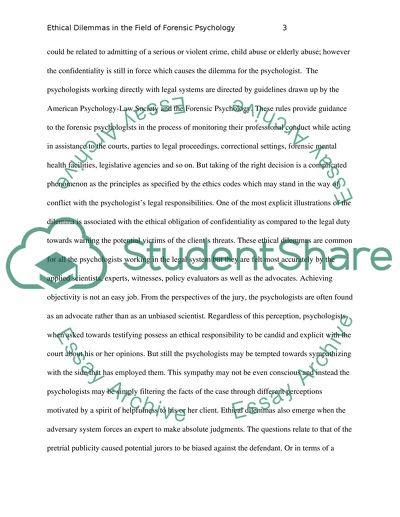Cite this document
(“Ethical Dilemmas in the Field of Forensic Psychology Research Paper”, n.d.)
Ethical Dilemmas in the Field of Forensic Psychology Research Paper. Retrieved from https://studentshare.org/psychology/1468291-ethical-dilemmas-in-forensic-psychology
Ethical Dilemmas in the Field of Forensic Psychology Research Paper. Retrieved from https://studentshare.org/psychology/1468291-ethical-dilemmas-in-forensic-psychology
(Ethical Dilemmas in the Field of Forensic Psychology Research Paper)
Ethical Dilemmas in the Field of Forensic Psychology Research Paper. https://studentshare.org/psychology/1468291-ethical-dilemmas-in-forensic-psychology.
Ethical Dilemmas in the Field of Forensic Psychology Research Paper. https://studentshare.org/psychology/1468291-ethical-dilemmas-in-forensic-psychology.
“Ethical Dilemmas in the Field of Forensic Psychology Research Paper”, n.d. https://studentshare.org/psychology/1468291-ethical-dilemmas-in-forensic-psychology.


